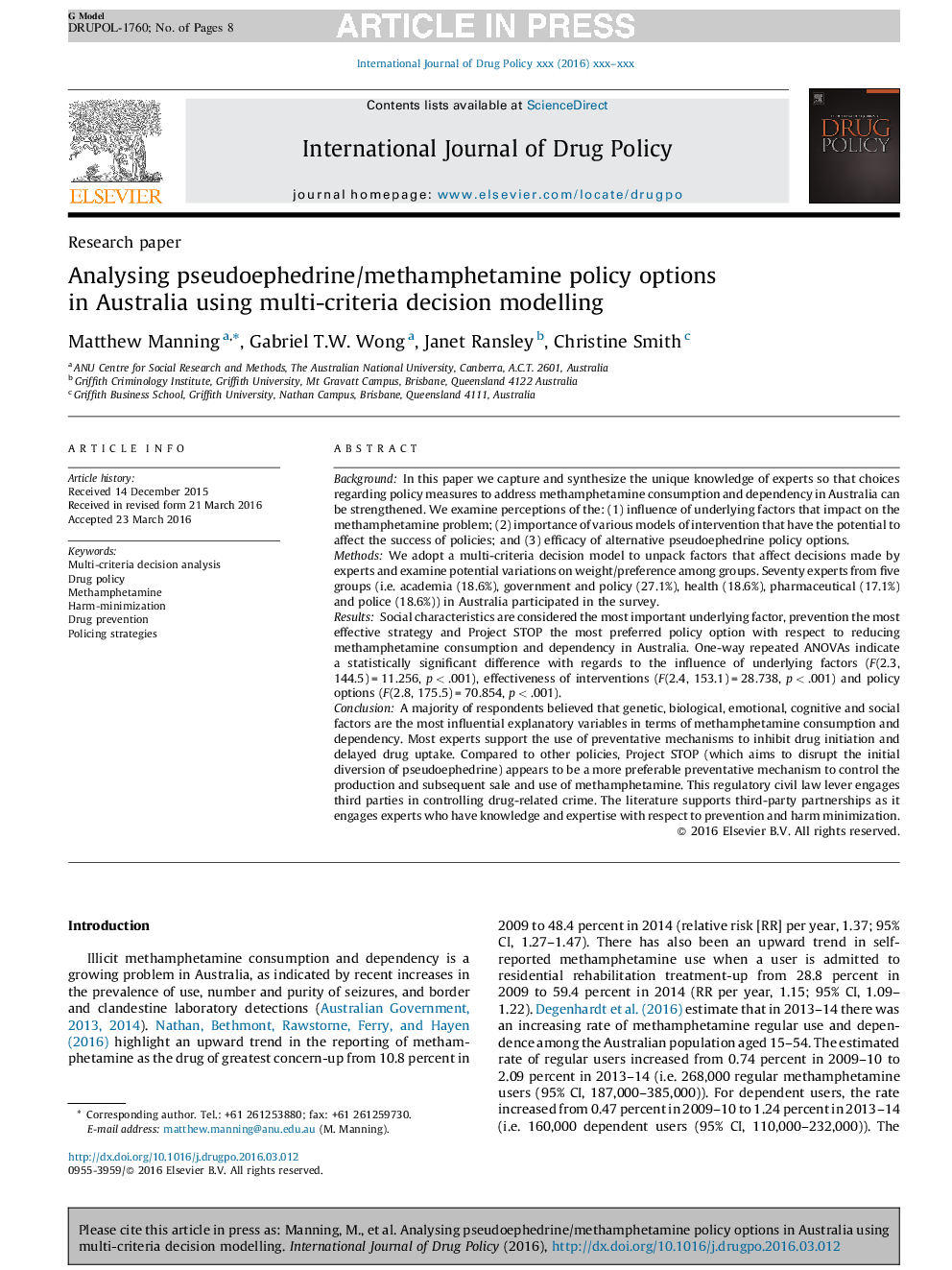| Article ID | Journal | Published Year | Pages | File Type |
|---|---|---|---|---|
| 7512837 | International Journal of Drug Policy | 2016 | 8 Pages |
Abstract
A majority of respondents believed that genetic, biological, emotional, cognitive and social factors are the most influential explanatory variables in terms of methamphetamine consumption and dependency. Most experts support the use of preventative mechanisms to inhibit drug initiation and delayed drug uptake. Compared to other policies, Project STOP (which aims to disrupt the initial diversion of pseudoephedrine) appears to be a more preferable preventative mechanism to control the production and subsequent sale and use of methamphetamine. This regulatory civil law lever engages third parties in controlling drug-related crime. The literature supports third-party partnerships as it engages experts who have knowledge and expertise with respect to prevention and harm minimization.
Related Topics
Health Sciences
Medicine and Dentistry
Psychiatry and Mental Health
Authors
Matthew Manning, Gabriel T.W. Wong, Janet Ransley, Christine Smith,
